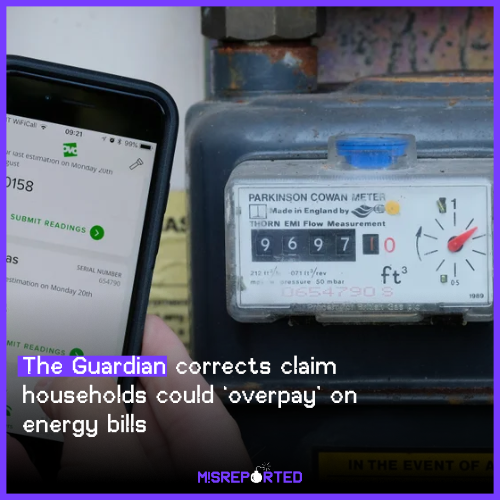The Guardian corrects claim households could ‘overpay’ on energy bills
The Guardian has corrected its September 23 article, “Energy bills: millions of Britons ‘at risk of overpaying if they fail to read meter’,” after acknowledging that a key figure was framed in a misleading way.
The original story, based on advice from Uswitch, claimed households could “overpay” by £17 for a week’s energy if they failed to submit meter readings before the October price cap increase. The paper later conceded that the figure reflected not just higher rates but also expected seasonal usage, and that describing it as an “overpayment” was inaccurate.
The correction read: “This article was amended on 29 September 2025 to make clear that the £17 figure quoted, for the difference in the cost of a week’s energy per home in October compared to September, is due to a combination of both higher rates and increased usage, not just the former. Accordingly, a reference that the difference represents an ‘overpayment’ has been removed.”
The distinction matters. By suggesting the figure was purely an “overpayment,” the article risked misleading readers into thinking suppliers were unfairly pocketing money, when in fact the increase came from the mechanics of both pricing and higher consumption. Analysts note that headlines around energy costs are particularly sensitive in Britain, where millions face ongoing price volatility and the debate around fairness in billing is already politically charged.
Critics say the episode fits a broader pattern of how energy reporting can blur nuance in pursuit of urgency. The Guardian’s framing of “millions at risk” without clearly separating higher unit rates from usage trends amplified confusion at a time when households are being told to shop around and provide meter readings to protect themselves.
With the cap set to rise to £1,755 a year for a typical dual-fuel bill on October 1, even small inaccuracies in reporting risk undermining trust. And in an environment where price warnings dominate headlines, clarity about what is — and is not — an “overpayment” is not optional.


